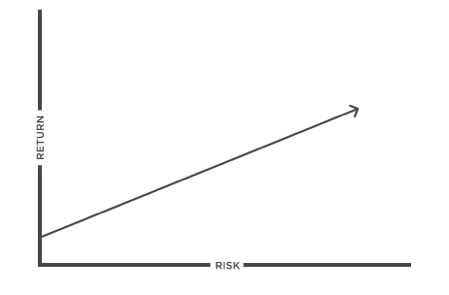FACT: You are Human. I am Human
We talk about stock market returns as if they go up in a straight line.
When we discuss the “average” return our mind immediately latches on to that number and draws a mental picture of a straight line up.

We know that is WRONG.
We know the stock market does not move in a straight line, but more of a rollercoaster ride.

Even though we know…we still can’t get out of our own way….and why is that?
The answer is Behavioral Finance….
In 1981, the Nobel Prize-winning economist Robert Shiller published a groundbreaking study that contradicted a prevailing theory that markets are always efficient. If they were, stock prices would generally mirror the growth in earnings and dividends. Shiller’s research showed that stock prices fluctuate more often than changes in companies’ intrinsic valuations (such as dividend yield) would suggest.1
Shiller concluded that asset prices sometimes move erratically in the short term simply because investor behavior can be influenced by emotions such as greed and fear. Many investors would agree that it’s sometimes difficult to stay calm and act rationally, especially when unexpected events upset the financial markets.
Researchers in the field of behavioral finance have studied how cognitive biases in human thinking can affect investor behavior. Understanding the influence of human nature might help you overcome these common psychological traps.
In Practice:
I can confirm these findings. After 13 years in business, truth be told, I spend more time managing my clients behaviors then their actual portfolios.
Building their financial plan and appropriate allocation is simple but preventing them from blowing up the whole thing when the market makes a correction is very hard!
Behaviors
Overall there are 5 behaviors that most investors exhibit at some point in their investing lives that I have to help them work through.
Are you guilty of any?
They are:
Herd mentality
Individuals may be convinced by their peers to follow trends, even if it’s not in their own best interests. Shiller proposed that human psychology is the reason that “bubbles” form in asset markets. Investor enthusiasm (“irrational exuberance”) and a herd mentality can create excessive demand for “hot” investments. Investors often chase returns and drive up prices until they become very expensive relative to long-term values.
Past performance, however, does not guarantee future results, and bubbles eventually burst. Investors who follow the crowd can harm long-term portfolio returns by fleeing the stock market after it falls and/or waiting too long (until prices have already risen) to reinvest.
Availability bias
This mental shortcut leads people to base judgments on examples that immediately come to mind, rather than examining alternatives. It may cause you to misperceive the likelihood or frequency of events, in the same way that watching a movie about sharks can make it seem more dangerous to swim in the ocean.
Confirmation bias
People also have a tendency to search out and remember information that confirms, rather than challenges, their current beliefs. If you have a good feeling about a certain investment, you may be likely to ignore critical facts and focus on data that supports your opinion.
Overconfidence
Individuals often overestimate their skills, knowledge, and ability to predict probable outcomes. When it comes to investing, overconfidence may cause you to trade excessively and/or downplay potential risks.
Loss aversion
Research shows that investors tend to dislike losses much more than they enjoy gains, so it can actually be painful to deal with financial losses.2 Consequently, you might avoid selling an investment that would realize a loss even though the sale may be an appropriate course of action. The intense fear of losing money may even be paralyzing.
Wrap Up
These 5 behaviors show that the chips are stacked against your financial success….and sadly the #1 enemy lives between your ears. Most investors will do more damage to their portfolio than rising interest rates, elections, recessions and maybe even depressions.
It’s important to slow down the process and try to consider all relevant factors and possible outcomes when making financial decisions. Having a long-term perspective and sticking with a thoughtfully crafted investing strategy may also help you avoid expensive, emotion-driven mistakes. In addition to your investing strategy, a sound financial plan and a behavioral coach are necessary tools to achieve success.
As always, you can consult with me to discuss your current investment strategy.
Look for future posts on the best ways to protect your family in case of a premature death and check out my recent post on financial strategies to avoid at all cost!
Lastly click here to sign up for all great stuff The Art of Financial Planning has to offer!
Thanks for stopping by and I hope you achieve financial success!
All investments are subject to market fluctuation, risk, and loss of principal. When sold, investments may be worth more or less than their original cost.
1 The Economist,“What’s Wrong with Finance?” May 1, 2015
2 The Wall Street Journal,“Why an Economist Plays Powerball,” January 12, 2016




3 thoughts on “Surprise – You are Human!”
Comments are closed.